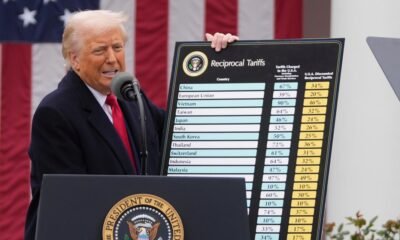crime
Republican Sen. Tom Cotton Stifles Press Freedom Bill as Trump Urges GOP to ‘Kill’ It

An ambitious initiative to safeguard press freedoms was halted in the U.S. Senate on Tuesday evening. The proposed journalism shield law aimed to restrict the federal government’s authority to compel journalists to disclose their sources.
President-elect Donald Trump, known for his contentious interactions with the media, expressed strong opposition to the proposal. Arkansas GOP Senator Tom Cotton obstructed Oregon Democratic Senator Ron Wyden’s motion for unanimous consent, labeling the bill “a threat to U.S. national security” and “an insult to basic fairness.”
Despite the House passing its version of the measure through a voice vote earlier this year, Trump had urged congressional Republicans to “kill this bill” last November. The possibility of reaching unanimous consent in the Senate appeared bleak, given Trump’s influence within the Republican conference.
Cotton, who is set to chair the Senate GOP conference, argued that the legislation would create a “protected class” of reporters, granting them the ability to handle and publish classified information not available to other Americans. He added that the bill would position the Senate as an accomplice to “deep-state leakers, traitors, and criminals.”
The legislation had garnered bipartisan support, with Wyden introducing a companion bill in June 2023. GOP Senators Mike Lee of Utah and Lindsey Graham of South Carolina, along with Illinois Democratic Senator Dick Durbin, signed on as co-sponsors.
Wyden characterized the bill as “common sense,” noting that previous administrations have exploited the absence of a federal shield law to undermine press freedom and, in some cases, jailed journalists for upholding their ethical obligations. Senate Majority Leader Chuck Schumer echoed this sentiment, emphasizing the necessity of a free press for democracy’s survival.
The proposed law would set limitations on federally compelled disclosure of journalistic information and curtail federal surveillance of journalists. Numerous media organizations and press advocacy groups have lobbied for the bill’s enactment, particularly in light of concerns over Trump’s return to the presidency and his history of threats against reporters.


















